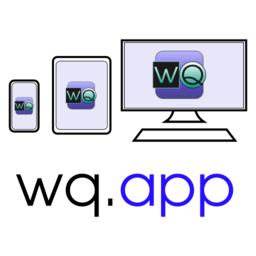wq.app is a suite of Javascript modules and related assets, created to facilitate the rapid deployment of offline-cabable HTML5 mobile and desktop data collection apps for crowdsourcing, citizen science, and volunteered geographic information, as well as professional field data collection. wq.app is the client component of the wq framework, and can be used with any REST service as a backend. In particular, when combined with a Mustache-capable REST service like wq.db, wq.app can be used to create responsive, progressively enhanced websites / apps, that can selectively render individual application screens on the server or on the client depending on project needs, network connectivity, and offline storage availability.
# Recommended: create virtual environment
# python3 -m venv venv
# . venv/bin/activate
# Install entire wq suite (recommended)
pip install wq
# Install only wq.app
pip install wq.appSee the documentation for more information.
wq.app's JavaScript modules are built on a number of libraries including RequireJS, jQuery Mobile, Leaflet, d3, and Mustache.js. wq.app extends these libraries with:
- wq/app.js, a high-level application controller and configuration-driven CRUD client (optimized for use with wq.db.rest)
- wq/chart.js, configurable d3-based reusable charts, including time series and boxplots
- wq/map.js, Leaflet integration for wq/app.js pages that contain geometry (loaded via GeoJSON)
- wq/model.js, a lightweight implementation of models / collections
- wq/outbox.js, an offline queue of
<form>submissions for later synchronization - and a number of other useful utilities
To facilitate compact deployment, wq.app provides a Python-based build process for compiling wq apps: inlining templates, optimizing code (via r.js), and generating a native application package (via PhoneGap Build). wq.app also includes jquery-mobile.scss, a SASS/SCSS stylesheet for generating custom jQuery Mobile themes.








